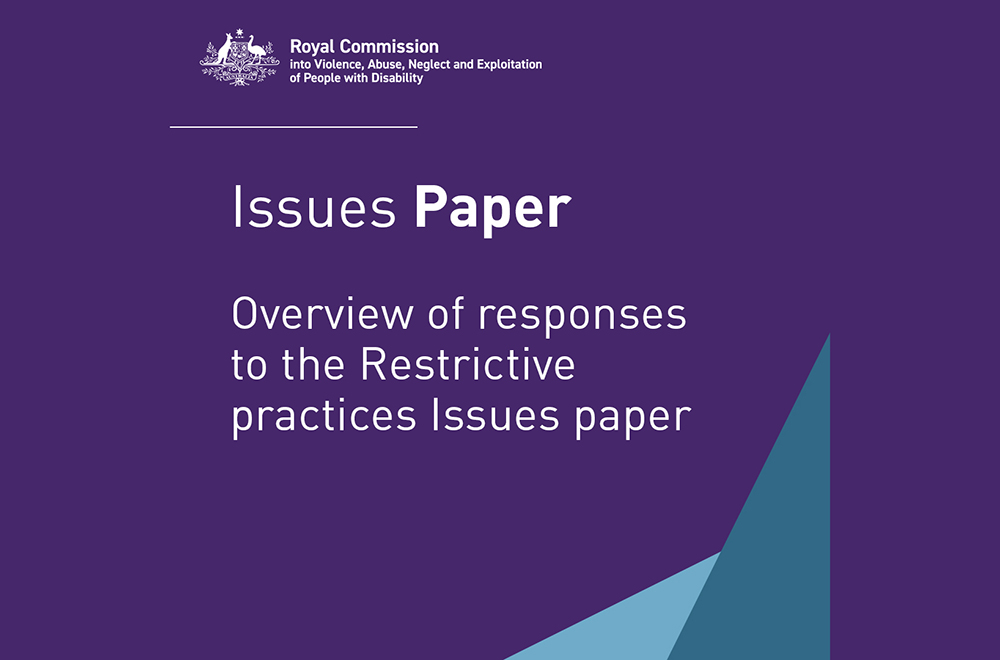The Disability Royal Commission has published an Overview of responses to the Restrictive practices Issues paper. Respondents to the paper overwhelmingly called for the use of ‘restrictive practices’ against people with disability to be a method of last resort. The use of restrictive practices should be supervised by properly funded and trained professionals, and managed according to clear, legally enforceable restrictions.
It also called for reforms to ensure these restrictions are consistent around Australia, with better training, proper accreditation and independent monitoring of the use of restrictive practices. Responses also suggested that people with disability, and the broader community, require more education to better understand their rights in relation to restrictive practices.
Last year the NDIS Quality and Safeguards Commission revealed in evidence to the Royal Commission that it received reports of 302,690 unauthorised uses of restrictive practices for 2019/2020, 78 per cent reported in the second half.
Reponses received by the Royal Commission showed that restrictive practices are ‘used every day in the lives of people with disability’, even though they often caused serious harm to people subjected to the practices.
Respondents highlighted many types of restrictive practices, including physical restraint (holding a person down); mechanical restraint (using or disabling a device to restrict a person’s movement); and environmental restraint (locking a person in a room).
A number of disability service providers said the most common form remains chemical restraint, such as using a drug to sedate someone whose behaviour is perceived to be challenging.
Read the full Overview of responses to the Restrictive practices issues paper here.

